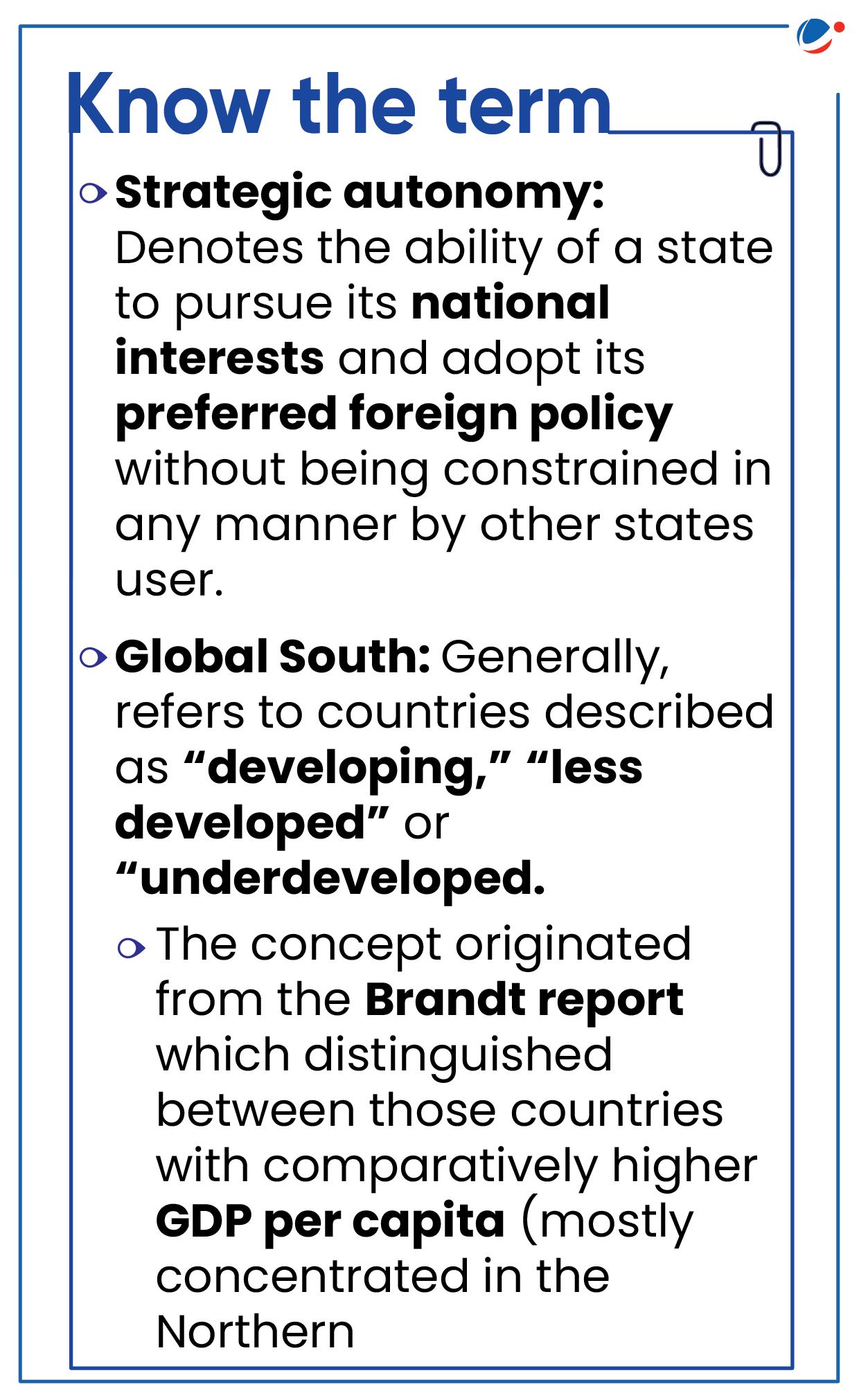Why in the News?
Recently, United States of America warned of potential sanctions on India as it signed Chabahar port deal with Iran.

More on News
- USA fears that India-Iran Chabahar deal may act against trade sanctions imposed by USA to curb its nuclear programme.
- Earlier, there were also apprehensions of sanctions on India as per Countering America's Adversaries through Sanctions Act (CAATSA) for purchase of the S-400 missile defence system from Russia (No such sanctions was imposed).
- CAATSA is a USA federal law in force since 2017, under which the US government can impose sanctions on any country that has "significant transactions with Iran, North Korea or Russia".
- It entails economic & financial penalties for any nation that transacts with Russia on arms.
- Such events, along with the Russia-Ukraine and Israel-Palestine crises, have tested India's strategies to manage its bilateral relationships with various players in the region as well as the globe.
Strategies Adopted by India in Balancing Bilateral Relationships
- Maintenance of Strategic Autonomy in international affairs, which has evolved through policies such as doctrine of Non-Alignment.
- E.g. India maintains its independent relationship with Russia and the US, refusing to let either one dictates its foreign policy.
- De-hyphenation as a tool to engage with countries involved in conflicts with each other in an independent manner.
- E.g. India's relationship with Israel and Palestine stand on its own merits and are independent of each other.
- Wider diplomatic engagements and outreach.
- E.g., in 2022, India was able to evacuate students by Operation Ganga during Russia-Ukraine crisis by engaging with countries such as Russia, Ukraine, USA, Romania, Poland, Hungary, Slovakia, etc.
- Vision of Multi-polarity and Multilateralism offers India great potential to expand cooperation and advance an original outlook.
- E.g., India's push for reforms at the United Nations Security Council, World Trade Organization, etc., allows it to engage with like-minded countries worldwide.
- Offering alternative mechanisms such as Rupee-Rouble trade, Rupee-Rial mechanism enhances India's credibility in balancing its bilateral relationships.
- Use of soft power through outreach to diaspora such as NRIs and PIOs, etc. has helped build India's case at global stage.
- E.g. Indians in the USA lobbied for the Indo-US Nuclear Deal.
- Playing the Role of Mediator by maintaining a neutral stance and capability to bring diverse stakeholders to the negotiating table.
- E.g. India's hosting of G20 positioned its role as a dealmaker in a fluid international order. Moreover, India has also been able to project itself as a leader and voice of the Global South.
Issues and challenges India faces with respect to balancing bilateral relations
- Accusation of being a "Fence Sitter": E.g., Various countries accuse India of being a fence sitter and not taking stand even when it aspires to a world leader.
- Allegations of Financing Wars in favour of aggressor: E.g., European powers accused India of funding Russia's War by buying cheap Russian crude oil and not publicly criticising Russia's act of aggression.
- Emergence of New Axis: E.g., India's movement towards USA is leading to development of Russia-China Pakistan axis.
- Reputational damage: Maintaining neutrality while balancing its bilateral with conflicting nations can impact India's reputation with said nations.
- E.g., India did not condemn the USA's withdrawal from the Joint Comprehensive Plan of Action (JCPOA), which allegedly led to reputational damage, pushing Iran towards China.
- Dependence on Imports for energy as well as defence at times compromises India's stand at global position.
- E.g. Dependence on defence imports from Russia and oil imports from the Middle East at times plays an important role in shaping foreign policy.
- Emergence of Mini-laterals in the Indo-Pacific, such as QUAD, compromises the ideal vision of global cooperation.
Way forward
- Emerge as an alternative: India is suitably placed to emerge as an alternative to the US and China, and also focus on representing Global South in an increasingly polarized world order.
- Strategic Hedging: E.g. Balancing China involves developing the capacity and linkages to counter China's political and military efforts against India, despite maintaining civil diplomatic ties and trade.
- Self-dependency or diversification of risks: It is especially needed in critical sectors such as defence, energy etc.
- Following Internationalist and Multi-aligned foreign policy: Such policy can be based on issues-based coalition (E.g. BRICS, QUAD, G20, G7, SCO).
- Playing leadership role in tackling global challenges: Related to climate change, connectivity, terrorism, supply chain resilience (E.g. Supply Chain Resilience Initiative, Biopharmaceutical Alliance, Asia-Africa Growth Corridor ).





